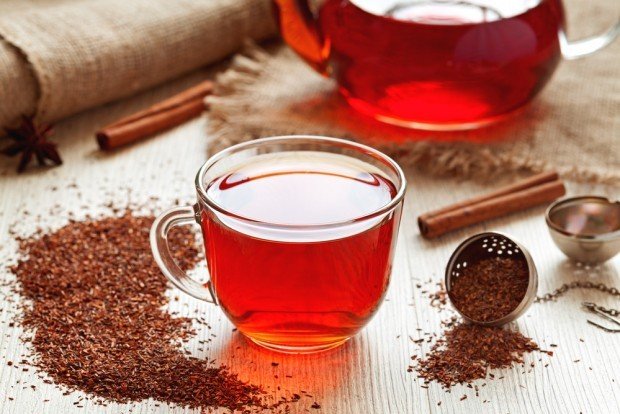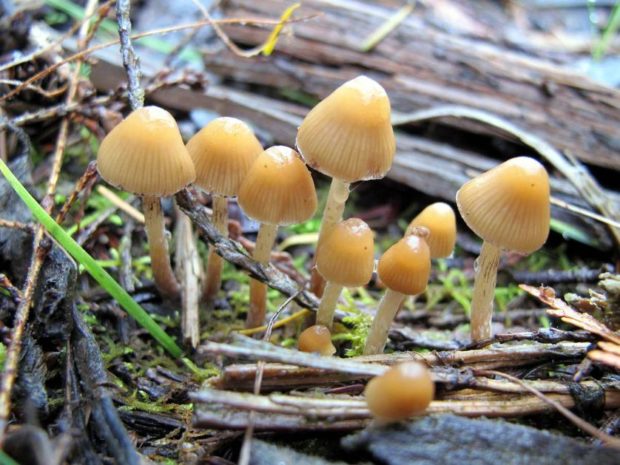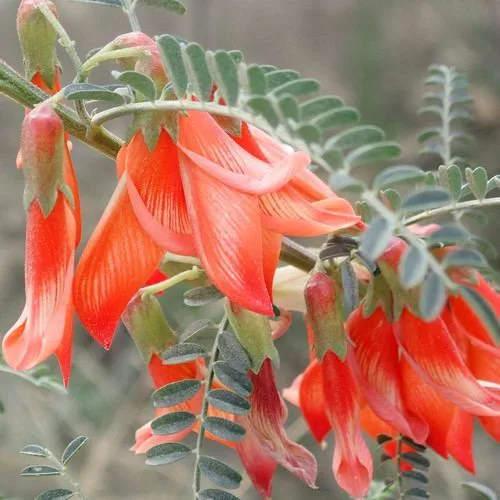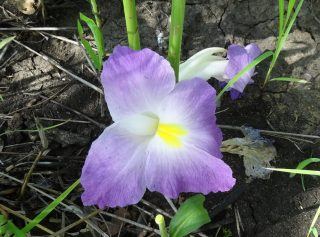For centuries, indigenous plants have been used as natural remedies to help heal many illnesses and promote wellbeing and longevity. Here are some of the most effective everyday therapies from Africa to consider.
Modern medicine has deep indigenous roots
Did you know that 40% of the modern medication is derived from plant-based substances? Indeed, by the beginning of the 21st Century, 11% of the 252 drugs considered “basic and essential” by the World Health Organization were “exclusively of flowering plant origin.
Drugs such as codeine, quinine, and morphine all contain plant-derived ingredients. Even one of the most common of all household over-the-counter pain-relief medications, aspirin, is derived from the willow bark.
In Africa, plant-based medicine practices have deep roots and a projected 2026 market value of $136 billion.
Homeopath Dr. Berkeley Digby has dedicated 41 years of his life to healing using natural resources. He emphasizes the importance of understanding and recognizing the powerful properties that plants hold, while still acknowledging the usefulness of modern, pharmaceutical drugs.
A balanced approach
Digby believes in the power of indigenous plants. “Let’s be balanced about it. Let’s look behind what’s in the chemist and what the motivation is; perhaps there is a natural alternative that is kinder to the body.”
He has personally been instrumental in the development of Breathe, for The Ubuntu Wellness Trust, a non-profit organization that aims to develop a healthier, kinder world. The unique homeopathic complex to boost immunity is based on many months of research into medical data about the pathologic effects of recent virus infections, through collaboration with homeopaths worldwide.
Digby says there are a vast number of African plants with healing properties. However, he stresses the importance of consulting with a professional. “One has to exercise caution. The pharmacy of African plants features some quite toxic plants, but they can be utilized in such a way that they have the least toxic effect.”
Indigenous plants best known for healing properties
Here are just some of the more widely researched indigenous plants that are proving their mettle when it comes to longevity.
African Ginger, Pelargonium, and Periwinkle
A popular natural Zulu remedy, African ginger can be used to treat asthma, coughs, colds, and the flu. It’s also used to treat malaria and can lessen period pains. Pelargonium sidoides, also known as the South African geranium or Umcka, is effective against acute chronic lung disease and also improves blood flow, so may prevent clotting, Digby says this remedy is proving to be very powerful.
The Swati people use African ginger to treat malaria and to help prevent horse sickness in horses.
“A particularly powerful plant can likely be found right in your garden. The Madagascar periwinkle is effective against non-Hodgkin’s lymphoma, a type of cancer that begins in your lymphatic system. Taxus, also known as the yew tree, has anti-cancer properties. It has been used for breast and ovarian cancer and used in drugs for chemotherapy.”
Sutherlandia
For centuries, Sutherlandia, also known as kalkoenbos, phetola, or cancer bush, has been used to treat wounds, reduce fevers, and aid in conditions and illnesses such as diabetes, kidney, and liver problems, urinary tract infections, and even depression. It contains strong anti-carcinogenic properties and promotes cell turnover, thereby making it an effective aid in the treatment of cancer.
Digby says Sutherlandia studies have shown excellent results: “There are certain plants in the world that are universally good for people, and they’re called adaptogens. The Chinese identified adaptogens in the following way: when a plant is chewed and tasted, and it has five tastes – bitter, sweet, salty, spicy, and sour you know that it will benefit all of the five vital internal organs.”
A South African study has shown that Sutherlandia can even aid in the treatment of HIV/AIDS, improving CD4 counts and reducing viral load. In self-replicating viruses such as AIDS and COVID-19, it has exhibited a binding to the virus, which would mean that it may prevent the virus from replicating. However, further studies are still underway in terms of Sutherland and COVID-19.
Rooibos
Derived from the dried leaves of the Aspalathus linearis shrub that grows in the Cederberg Mountains, rooibos tea is a staple in many households. Many rooibos studies have confirmed the incredible power of this indigenous plant.
According to Prof Jeanine Marnewick, from the Applied Microbial and Health Biotechnology Institute at the Cape Peninsula University of Technology, rooibos has unique phenolic content. Aspalathin is one of the main flavonoids in rooibos. It acts as a potent antioxidant, along with other attributes that may be linked to its health-promoting effects. Rooibos is also naturally caffeine-free and can support your body in better regulating blood sugar levels and improving blood lipid levels.
Scientific studies indicate that with a single cup of rooibos, you can increase your antioxidant capacity in the blood after one hour of intake and that a single cup may inhibit the important ACE2 enzyme, which plays a role in regulating blood pressure.
“The rooibos polyphenols are proposed to minimize the free radicals and boost our antioxidant system, ensuring the recovery of the redox status, and simultaneous reduction in inflammation and associated pathologies,” Marnewick says.

GreenArt/Shutterstock
The optimal cup is a rooibos tea bag (or loose tea) steeped in 200ml of boiling water for 10 minutes or longer, to obtain the best polyphenol extraction, and a minimum of four to six cups per day would fully provide the health benefits of rooibos tea.
Cannabis
Of course, it’s near impossible to talk about plant power in this day and age without mentioning CBD. Since becoming legal for medical use in many states in the US, parts of Europe and Israel, Africa has followed suit. South Africa legalized CBD for medical use in 2019, CBD and its various associated products can be found at pretty much any store, kiosk, or vendor. This ranges from topical creams to lollipops. Short for cannabidiol, this chemical compound is the second most prevalent ingredient in the Cannabis sativa plant.
CBD products don’t contain any THC (the cannabis ingredient that gets you high), so when ingested or applied to the skin, they simply leave you with a feeling of calm and relaxation. Many people are incorporating CBD-related products into their daily lives as a way to manage stress and anxiety, but the properties of CBD stretch much further.
Rhona Nortje, from South African pharmaceutical company Adcock Ingram, explains that
“CBD oil can be used as an aid for insomnia, pain, and other issues, without noticeable physical side effects. This is important, as many well-known pain medications have noticeable side effects, such as feelings of drowsiness, dizziness, or nausea. CBD relieves the symptoms associated with pain, as opposed to treating the source of the pain, which makes it an ideal alternative for individuals who deal with symptoms associated with pain.”
Psychoactive Plant Medicines
Then there are plants that contain wonderful healing properties, but, due to substance control and their potency, are still banned for personal use in many countries. One such category of plants is known as psychedelics, containing substances such as psilocybin, ayahuasca, and ibogaine.
Psilocybin is a chemical compound found in certain types of hallucinogenic mushrooms (also known as magic mushrooms or shrooms). Despite its prohibition shortly after its popularity peak during the Psychedelic Era of the 1970s, research into the therapeutic potential of psilocybin has continued to grow, and it’s getting closer to legalized medicinal use in countries such as Canada, the US, the Netherlands, and Israel.
Research confirms the power of indigenous fungi
Research from leading educational institutions such as Johns Hopkins University in the US is showing that medically supervised psilocybin therapy can help individuals to overcome stubborn post-traumatic stress disorders. It has also been reported in various clinical and scientific trials that psilocybin may assist in healing and repairing damaged neurons in the brain, as well as creating new neural pathways. However, the importance of being informed and educated on this powerful substance cannot be overstressed.
Psilocybin makes use of the brain’s serotonin pathways (the happy hormone) to alter the individual’s thought process, allowing a deeply introspective, and even spiritual, experience.
However, the real magic of the mushroom lies in the fact that it can assist individuals in separating themselves from the limiting mental programming that causes them to react in certain ways. This can help to override and bypass the brain’s habitual connections that cause consistent depressive, anxiety, and PTSD episodes.

Rhys Miller, a transformational coach, explains the benefits of psilocybin therapy:
“These are … medicines that have been used for thousands of years and are here to bring the human out of suffering to expand our consciousness and help to overcome our fear-based constructs. These plant medicines can take us into that process of understanding our trauma, letting go of all limiting belief systems and unconscious programs, which assists us to find a greater presence in this moment and a deeper acceptance of what is.”
West African indigenous plant power
Not as commonly known, ibogaine is one of the naturally occurring psychoactive alkaloids found in the West African plant Tabernanthe iboga. It’s best known for its ability to aid in overcoming addiction.
According to ibogaine researcher Martie S Underwood, Ph.D., ibogaine works by “resetting” the neurotransmitters of the brain and converting them to a compound called noribogaine. When ingested, it targets the areas in the brain most affected by addiction, allowing the brain to gradually return to its original, pre-addictive condition. It also aids in diminishing withdrawal symptoms, such as fevers, nausea, and aches.
The United Nations (UN) World Drug Report (2020), estimated that in 2018, 58 million people worldwide were using opioids. Opioids are responsible for approximately two-thirds of acute deaths resulting from substance use disorders, with an estimated 11 million people injecting on a daily basis. The recent rise in opioid-related deaths can be attributed to the non-medical use of prescription opioids, an increase in the use of heroin and the emergence of synthetic opioids such as fentanyl in illicit drug markets.
Treatment of addiction
 Underwood explains, it is against the background of the current scientific renaissance in psychedelics and using previously prohibited psychoactive substances as therapeutic agents (Bright, Williams, & Caldicott, 2017), ibogaine presents an alternative in the treatment of opioid use disorder
Underwood explains, it is against the background of the current scientific renaissance in psychedelics and using previously prohibited psychoactive substances as therapeutic agents (Bright, Williams, & Caldicott, 2017), ibogaine presents an alternative in the treatment of opioid use disorder
Although the lines are currently blurred when it comes to the legality and regulatory framework in which ibogaine treatment facilities operate, the substance is steadily building a reputation for “miracle-like” results in the treatment of addiction, and research into this substance continues to grow.
Closing comment
In this article we’ve highlighted certain indigenous plant-based therapies from Africa. These plants or fungi are widely studied and have been proven to improve your health and longevity. However, as with any medicinal therapy, there needs to be a considered approach. Understand the claims, ingredients and potential interactions or safety issues and consult your health practitioner for further advice.






![women [longevity live]](https://longevitylive.com/wp-content/uploads/2020/01/photo-of-women-walking-down-the-street-1116984-100x100.jpg)









